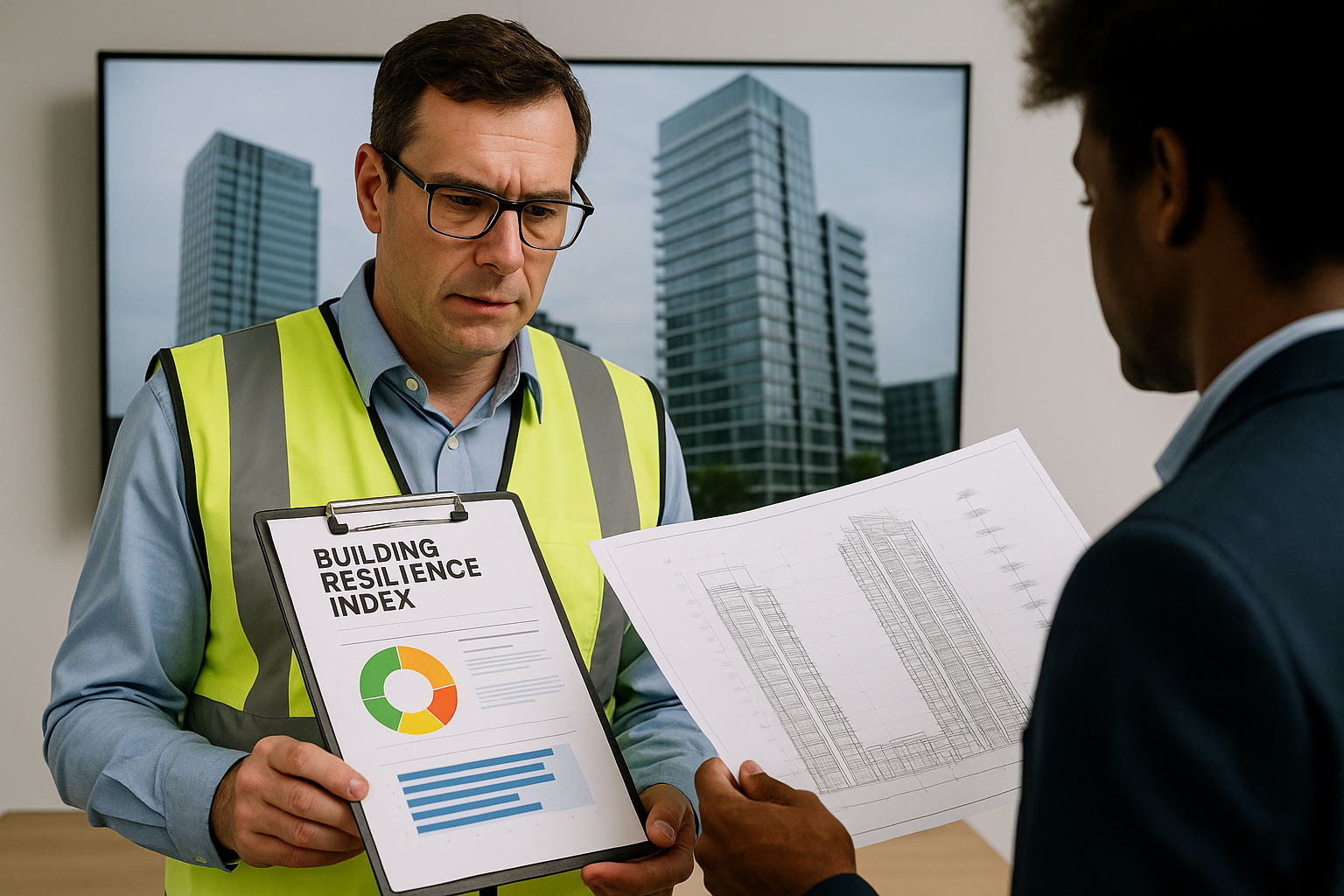IFC and Bureau Veritas Partner Globally to Scale Building Resilience Index
As physical risks continue to rise, risk-informed asset design and verification tools are no longer optional but essential for long-term sustainability and economic resilience.

In a landmark move to strengthen global infrastructure against escalating climate risks, Bureau Veritas, a world leader in testing, inspection, and certification services, has signed a first-of-its-kind global verifier agreement with the International Finance Corporation (IFC) to support the Building Resilience Index (BRI). This partnership marks a pivotal step in expanding the reach and reliability of the BRI, especially across emerging markets in Latin America, Africa, East Asia, and the Pacific — regions increasingly vulnerable to climate-induced disasters.
The Building Resilience Index, developed by the IFC (a member of the World Bank Group), is a web-based, science-driven framework that helps developers, investors, and policymakers evaluate and disclose the resilience of buildings to natural hazards. The agreement grants Bureau Veritas a central role as a third-party verification partner, adding trust, credibility, and global consistency to the assessment of climate-resilient construction practices.
Why Building Resilience Matters More Than Ever
With climate change intensifying the frequency and severity of extreme weather events—from floods and cyclones to heatwaves and earthquakes—infrastructure systems around the world are under strain. These natural hazards can result in:
-
Business disruptions
-
Supply chain breakdowns
-
Increased insurance premiums
-
Threats to employment and productivity
-
Economic losses and instability
As physical risks continue to rise, risk-informed asset design and verification tools are no longer optional but essential for long-term sustainability and economic resilience. The BRI-Bureau Veritas partnership directly addresses this need by empowering both the private and public sectors to proactively design, evaluate, and certify their buildings’ ability to withstand shocks.
The Role of Bureau Veritas: Trusted Verification for Global Markets
Bureau Veritas brings to the table a global network of independent experts with extensive experience in climate risk mitigation, structural inspection, and certification services. As part of this new partnership, the company will offer independent performance validation for buildings using the BRI framework. This ensures that users can:
-
Gain third-party confirmation of resilience features
-
Align with international insurance and financing requirements
-
Meet regulatory or investor expectations for risk transparency
-
Support disaster risk reduction planning and safer urban growth
“We are delighted to become a Global Verifier of the Building Resilience Index,” said Marc Roussel, Executive Vice President, Urbanization and Assurance at Bureau Veritas. “As climate phenomena intensify, it has become essential to integrate climate change adaptation into asset strategy. Our network of experts will add a layer of trust so stakeholders can rely on BRI to evaluate vulnerabilities and adaptation effectiveness worldwide.”
A Tool for Today’s Climate Challenges
The Building Resilience Index allows users to:
-
Identify building-specific risks from natural hazards based on location and design
-
Assess resilience in terms of building safety, usability, and continuity under hazard stress
-
Recommend improvements for structural, operational, or design vulnerabilities
-
Disclose resilience performance to regulators, insurers, lenders, and investors
The platform was conceived to provide a scalable, accessible, and science-based tool for mainstreaming climate adaptation across private and public infrastructure portfolios.
“As businesses face increased risks to assets and infrastructure from natural disasters, the ability to assess and verify resilience is becoming a crucial element of operational and investment strategy,” said Diep Nguyen-van Houtte, Senior Manager of Climate Business at IFC. “This partnership strengthens the BRI by ensuring more clients—especially in high-risk geographies—can benefit from credible, independently-verified resilience insights.”
Benefits for Stakeholders Across the Value Chain
By integrating BRI assessments and Bureau Veritas verification into planning and construction processes, stakeholders will be better equipped to:
-
Protect operational continuity by identifying risk early
-
Preserve jobs and livelihoods in disaster-prone communities
-
Improve insurance eligibility and secure better lending terms
-
Boost investor confidence and attract sustainable financing
-
Enhance public trust through transparent, science-backed disclosures
In essence, the BRI is more than just a risk rating system — it’s a climate adaptation toolkit that enables smarter, safer, and more resilient infrastructure investment.
BRI’s Global Roots and Support Network
The Building Resilience Index is backed by a broad coalition of public and private stakeholders. Funded by the Australian Government, BRI’s development was piloted with seed support from:
-
Government of the Netherlands
-
The Rockefeller Foundation
-
ARISE Private Sector Alliance for Disaster Resilient Societies
-
Build Change
-
FM Global
-
Global Facility for Disaster Reduction and Recovery (GFDRR)
-
Miyamoto International
-
Resilience Action Fund
This multilateral collaboration reflects growing global momentum toward embedding disaster risk reduction and climate adaptation in real estate, infrastructure development, and urban planning.
Looking Ahead: Scaling Climate Resilience Worldwide
The IFC–Bureau Veritas agreement sets the stage for global implementation of building resilience standards, helping countries and companies shift from reactive disaster response to proactive risk management. It also aligns with IFC’s broader climate strategy to empower private sector actors to drive adaptation and reduce vulnerability in developing economies.
By integrating verified resilience into the DNA of buildings, cities can be better prepared to withstand the next flood, cyclone, or earthquake—ensuring continuity for communities and businesses alike.
ALSO READ
Georgia’s Green Growth Strategy: A Roadmap for Resilient and Sustainable Development
Global Market Jitter: Emerging Markets React to U.S. Tariff Decisions
Deadly Deluge: Extreme Weather Ravages Northern China
Delhi's Urban Transformation: Housing for All and Sustainable Development
Punjab's Land Pooling Policy: A Path to Sustainable Development?









